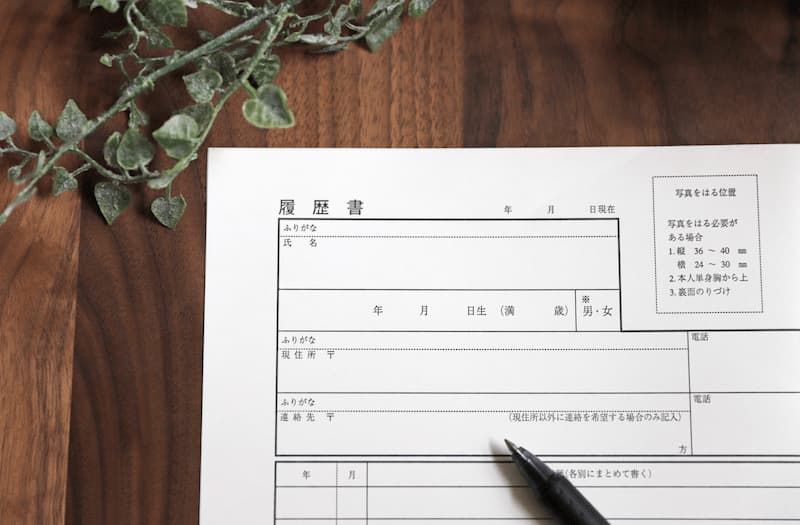Compared with overseas university students, the proportion of Japanese students who work part-time is high, with over 70% working or having worked part-time in the past. Some students spend more time working part-time than studying.
I think international students from overseas also look for part-time work for various reasons, such as to cover living expenses, for travel, for hobbies, or to work using Japanese.
In this post, I will explain the types of part-time jobs that are popular with Japanese students, how to look for them, and what international students should be aware of when working part-time.
The word “Baito” comes from German word
“Baito” means “part- time job”. The word comes from the German word “Arbeit”, which means work. Many Japanese call it “Arubaito” or “Baito” for short.
It is said that the term “Arubaito” originated in the Meiji era (1868-1912) when students started to call doing after-school tutor “Arubaito”. Today’s young Japanese tend to use the abbreviation “Baito” rather than “Arubaito”. Also, the place where they work as a part-timer, “Baito-saki (saki means a place to work)”, is abbreviated to “Ba-saki”.
By the way, if you have a “full-time job”, you would say “私は仕事をしています ( Watashiwa shigoto wo shiteimasu)”. The word “仕事 (Shigoto)” has the same meaning as the English words “job” and “work,” and originally “Baito” is also a kind of “仕事 (Shigoto)”, but for some reason Japanese don’t say “私は仕事をしています” for doing a part- time job. “私はバイトをしています (Watashi wa baito wo shiteimasu) (I work as a part-time)” is more common way to say that.
Types of baito and popular baito for university students
Even if you say “Baito” in general, there are different types and jobs. Here are three types of Baito that are popular among students!
Long-term baito

The most popular places for university students to work are convenience stores, supermarkets, restaurants such as Izakaya, and private cram schools. Many people work at the same place on a long-term contract from their freshman year until they graduate. They work while balancing their studies and free time.
Resort baito (short-term)

This is a type of Baito where you work for a contract of 2 to 3 months. You work at a resort (ski resort, beach, spa resort, etc.) during your long vacation. You often live in a dormitory and don’t have to pay for transportation or food. The high hourly wage also makes it perfect for people who want to make money in a short period of time. In places where there are many foreign tourists, there are opportunities to serve customers in languages other than Japanese, such as English and Chinese, so foreign students are in demand. If you work at a ryokan (Japanese-style inn), you may be able to wear a kimono to work every day. You’ll also be able to learn about Japanese propriety and hospitality.
One-off baito

This is a popular way of working, especially among young people these days. You work for a short period of time, from as little as one day to one month. In some cases, you don’t even need a resume. The main features of this type of job are that you can work without worrying about human relations, and you get paid straight away.
How to find baito in Japan

Recently, more and more people are using the internet and apps to find part-time work, but there are still many people who decide where to work based on introductions from acquaintances, or who see help- wanted advertisement in shops and apply for them. If you visit the place and get a feel for the atmosphere before you apply, you might be able to find a part-time job that you can work for a long time.
What international students need to work as baito in Japan
1. Permission to engage in activities other than that permitted under the status of residence previously granted
First of all, in order to work in Japan, international students need to apply to the Ministry of Justice for Permission to engage in activities other than that permitted under the status of residence previously granted, and obtain permission to work. There are two ways to apply for the Permission to engage in activities other than that permitted under the status of residence previously granted: you can submit your application at the airport when you first arrive in Japan, or you can submit it at a Regional Immigration Bureau. If you are granted Permission to engage in activities other than that permitted under the status of residence previously granted, this will be noted on the back of your Residence Card.
You can search for the nearest Regional Immigration Bureau using the following URL.
https://www.moj.go.jp/isa/about/region/?hl=en
2. Bank account
You will need a Japanese bank account to receive your part-time job salary. If you do not have a Japanese bank account, I recommend that you open an account at the bank specified by your part-time job employer. Paydays are generally at the beginning or end of the month.
3. Resume
In order to work as a part-time worker, you will need to have an interview. At this time, you will need to take your Japanese resume with you.
On your resume, you should handwrite your personal information (name, address, etc.), your educational background from elementary school to the present day, your work history (including part-time jobs) if you have, any qualifications or licenses you have (such as the JLPT level or the driving license), and your reasons for applying for the job. You should also attach a photo of yourself wearing a suit. If you don’t have a hanko/ personal seal, you don’t need to use one. You can buy a resume at supermarkets, convenience stores, and 100 yen shops.

Things to keep in mind when international students work as baito in Japan
There are restrictions on the hours and places where international students can work. During the school term, the limit is 28 hours per week, and during long vacations, the limit is 48 hours per week. Please be careful not to exceed these limits or work in places that fall under the category of “the Entertainment and Amusement Trades industry”, as this may result in your student visa being withdrawn or you being deported.
Enjoy your student life in Japan to the fullest by following the rules of part-time work!


